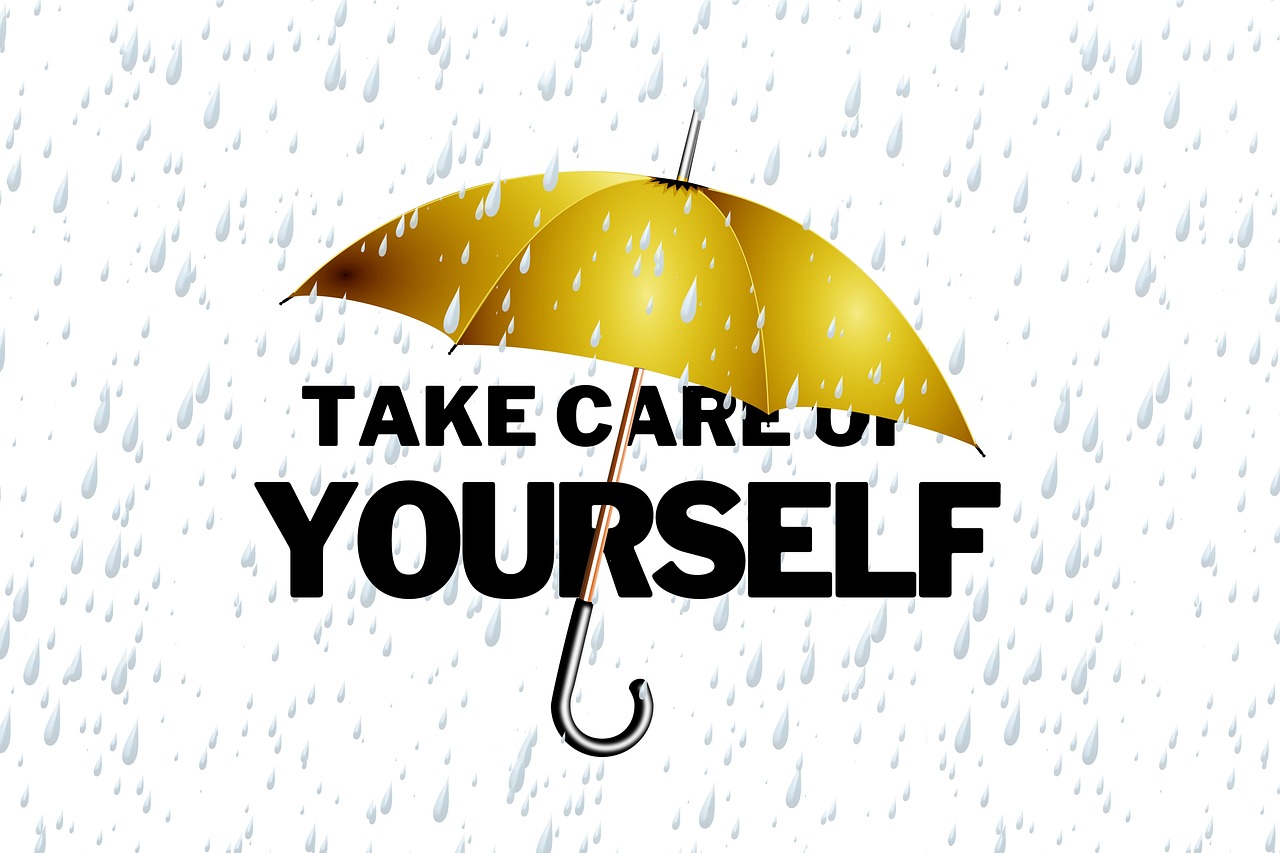Psychological Benefits of Consistent Self Defense Training
In today's fast-paced world, where uncertainty lurks around every corner, the importance of personal safety cannot be overstated. This is where consistent self-defense training comes into play, offering not just physical skills but a treasure trove of psychological benefits that can transform your life. Imagine walking into a room filled with people, and instead of feeling small and anxious, you radiate confidence and assurance. That’s the magic of self-defense training! It’s not just about learning how to throw a punch or escape a hold; it’s about cultivating a mindset that empowers you in every aspect of your life. Let’s dive into the various psychological advantages that regular self-defense training can offer, from boosting self-confidence to enhancing decision-making skills.
One of the most remarkable benefits of engaging in self-defense training is the significant boost in self-confidence it provides. Think about it: when you know you have the skills to protect yourself, you naturally feel more empowered to face life’s challenges. This newfound confidence often spills over into other areas of life, whether it’s speaking up in meetings, approaching new people, or tackling personal goals. As you practice and master various techniques, you begin to believe in your abilities, leading to a more assertive and positive outlook on life. It’s like building a muscle; the more you train, the stronger you become, not just physically but mentally as well.
Let’s face it, life can be stressful! Engaging in self-defense training provides a fantastic outlet for stress relief. Picture this: after a long day at work, you step onto the mat and channel all that pent-up frustration into powerful kicks and swift movements. This physical activity not only helps you blow off steam but also allows you to regulate your emotions more effectively. Instead of letting stress consume you, you learn to channel it constructively, leading to a calmer mindset and better emotional health. The act of focusing on your movements and techniques can be incredibly meditative, offering a much-needed break from the chaos of daily life.
It’s no secret that physical activity is a cornerstone of good mental health. Self-defense training is a fantastic way to get your heart pumping, and in doing so, it releases endorphins—the body’s natural mood lifters. This rush of endorphins can help reduce feelings of anxiety and depression, leaving you feeling more positive and accomplished. Each session becomes a mini-celebration of your achievements, whether it’s mastering a new technique or simply showing up consistently. The more you engage in this physical practice, the more you foster overall psychological well-being.
In our distraction-heavy world, the ability to remain present is invaluable. Self-defense training encourages a state of mindfulness and focus, as practitioners must be acutely aware of their surroundings and their own movements. This heightened awareness not only enhances your performance during training but also translates into your everyday life. You’ll find that you’re better equipped to manage distractions, concentrate on tasks, and engage more fully with those around you. It’s like training your brain to be as sharp as your physical skills!
Resilience is the ability to bounce back from setbacks, and self-defense training is a fantastic way to cultivate this essential skill. Through consistent practice, individuals learn to face challenges head-on, whether it’s a tough sparring session or mastering a complex technique. Each challenge you overcome builds your mental toughness, preparing you to tackle obstacles in other areas of your life. It’s about learning that failure isn’t the end; it’s merely a stepping stone on your path to success. This mindset shift is invaluable and can lead to a more fulfilling and resilient life.
Let’s not overlook the social aspect of self-defense training. Participating in classes creates a sense of community and belonging. You’re not just training alone; you’re surrounded by like-minded individuals who are also seeking personal growth and safety. These social connections can enhance your emotional well-being, providing a support system that is crucial for mental health. Whether you’re celebrating achievements together or offering encouragement during tough times, these relationships can make a world of difference.
Self-defense training sharpens your decision-making skills in a way that can be surprisingly impactful. As you practice assessing various situations and responding effectively, you develop a knack for quick thinking. This skill translates beyond the dojo or gym; you’ll find yourself making better decisions in everyday situations, whether it’s navigating a tricky social scenario or making choices in your career. The confidence gained from making effective decisions in training can empower you to trust your instincts in real life.
The structured nature of self-defense training instills a sense of discipline that can positively affect many areas of your life. By setting goals—whether it’s achieving a new belt rank or mastering a specific technique—you learn to maintain focus and work diligently towards those objectives. This discipline can carry over into your personal and professional life, helping you stay committed to your goals and aspirations.
Lastly, learning self-defense techniques empowers individuals with knowledge and skills that foster a sense of security and independence. This empowerment is crucial for mental health, as it significantly contributes to an individual’s overall sense of well-being. Knowing you can defend yourself not only enhances your confidence but also gives you a greater sense of control over your life. It’s not just about physical safety; it’s about feeling safe and secure in your own skin.
- How often should I train for optimal psychological benefits? Regular training, ideally two to three times a week, can maximize the psychological advantages.
- Can self-defense training help with anxiety? Yes! The physical activity and focus required during training can significantly reduce anxiety levels.
- Is self-defense training suitable for everyone? Absolutely! People of all ages and fitness levels can benefit from self-defense training.

Boosting Self-Confidence
Regular self-defense training significantly enhances self-confidence, empowering individuals to believe in their abilities to protect themselves and handle challenging situations. Imagine walking into a room full of strangers, and instead of feeling anxious, you stand tall, radiating a sense of assurance. This transformation isn't just a fantasy; it's a reality for many who commit to self-defense training. As you learn various techniques and strategies, you begin to trust your instincts and skills, which leads to a more assertive and positive outlook on life.
One of the most profound effects of self-defense training is the way it reshapes your self-perception. Initially, many people may enter classes feeling unsure or intimidated. However, with each session, as you practice and improve, you start to see yourself in a new light. You become aware of your physical capabilities and mental strength, which can be incredibly liberating. The journey from doubt to confidence is akin to a caterpillar transforming into a butterfly—it's a metamorphosis that empowers you to embrace challenges with newfound vigor.
Moreover, the environment in self-defense classes often fosters camaraderie among participants. This supportive community plays a crucial role in boosting confidence. When you spar with a partner or practice techniques together, you build trust and encouragement. The shared experiences of overcoming obstacles and celebrating successes create a bond that enhances your self-esteem. You realize that you are not alone in this journey; everyone is working towards the same goal—self-improvement.
As you progress in your training, you'll notice that the confidence gained extends beyond the dojo or training room. It seeps into your daily life, influencing how you interact with others and approach various situations. Whether it's speaking up in a meeting, confronting a challenging task, or simply navigating social interactions, the self-assurance cultivated through self-defense training acts as a powerful tool. You start to view challenges as opportunities rather than threats, which can lead to personal and professional growth.
In summary, the psychological benefits of consistent self-defense training go far beyond physical skills. By enhancing self-confidence, practitioners not only learn to protect themselves but also unlock a more empowered version of themselves. The journey is filled with challenges, but each step taken on the mat translates into a stronger, more confident individual ready to tackle life's hurdles.

Stress Relief and Emotional Regulation
Engaging in self-defense training is more than just learning how to throw a punch or escape a hold; it serves as a powerful outlet for stress relief. In our fast-paced, often chaotic lives, stress can accumulate like a heavy backpack, weighing us down and clouding our minds. However, when you step onto the training mat, you have the opportunity to shed that burden, if only for a while. The physical activity involved in self-defense not only helps to release pent-up energy but also triggers the production of endorphins, the body's natural mood lifters. This biochemical reaction can lead to feelings of happiness and relaxation, making self-defense training an effective antidote to daily stressors.
Moreover, self-defense training offers a unique way to channel emotions constructively. Instead of letting frustration or anxiety spiral into negative thoughts, practitioners learn to harness these feelings and transform them into focused energy. Imagine striking a punching bag; each hit is a release, a way to express what you might not be able to articulate in words. This process of physical expression can lead to better emotional regulation, allowing individuals to manage their feelings more effectively both inside and outside the dojo.
Another significant aspect of self-defense training is its emphasis on mindfulness and presence. During a practice session, you must concentrate on your movements, your breathing, and your surroundings. This heightened awareness takes you out of your head and into the moment, reducing the noise of anxiety and worry. It's similar to meditation in motion—where the rhythm of your body becomes a form of meditation that calms the mind. By consistently practicing this form of mindfulness, individuals can develop a calmer mindset that extends beyond the training environment. They find themselves better equipped to handle the stresses of daily life with a newfound sense of clarity and composure.
Additionally, the social aspect of self-defense training shouldn't be overlooked. Participating in classes fosters a sense of community, where individuals can share their experiences and support one another. This social connection can be immensely beneficial for emotional well-being. When you train with others, you build relationships that provide a safety net during tough times. It’s like having a group of cheerleaders who understand your struggles and celebrate your victories, no matter how small.
In conclusion, the psychological benefits of self-defense training extend far beyond physical safety. It offers a holistic approach to stress relief and emotional regulation, allowing individuals to reclaim their mental space. By engaging in this empowering practice, you can cultivate a sense of calm, resilience, and community that enhances your overall well-being.
- What are the primary benefits of self-defense training? Self-defense training provides numerous benefits, including improved physical fitness, increased self-confidence, stress relief, and enhanced emotional regulation.
- Can self-defense training help with anxiety? Yes, engaging in physical activity like self-defense can help reduce anxiety levels by releasing endorphins and allowing for emotional expression.
- How often should I train to see psychological benefits? Consistency is key. Training at least two to three times a week can help maximize the psychological benefits of self-defense.
- Is self-defense training suitable for everyone? Absolutely! Self-defense training can be adapted to suit all fitness levels and ages.

Physical Activity and Mental Health
Engaging in self-defense training is not just about learning how to throw a punch or block an attack; it's a comprehensive workout that significantly impacts mental health. When you think about it, physical activity is like a magic potion for the mind. It releases endorphins, those feel-good hormones that can elevate your mood and reduce feelings of anxiety. Imagine stepping onto the mat, feeling the adrenaline rush as you practice your moves—it's not just about the physical exertion; it's a mental reset!
When you immerse yourself in self-defense training, you’re not just building muscle; you’re also building a fortress around your mental well-being. The rigorous routines and techniques require focus and concentration, which can distract you from daily worries. This is akin to hitting the “refresh” button on your brain. The physical demands of training push you to your limits, and as you overcome these challenges, you cultivate a sense of achievement that spills over into other areas of your life.
Moreover, let’s not forget the social aspect of self-defense classes. Being part of a community where everyone shares the same goals can provide a significant boost to your mental health. You get to bond with others, share experiences, and celebrate victories together. This sense of belonging can be incredibly powerful, especially when life gets tough.
To illustrate the correlation between physical activity and mental health, consider the following table that summarizes the benefits of self-defense training on psychological well-being:
| Benefit | Description |
|---|---|
| Endorphin Release | Boosts mood and reduces anxiety. |
| Improved Focus | Enhances concentration and mental clarity. |
| Sense of Achievement | Fosters confidence and self-esteem. |
| Community Support | Provides emotional connections and a sense of belonging. |
In summary, self-defense training is a multifaceted approach to improving mental health. It combines physical exertion with emotional support, leading to a more balanced and resilient mindset. So, next time you lace up those training shoes, remember that you're not just honing your self-defense skills; you're also investing in your mental wellness!
- How often should I train for maximum mental health benefits?
It's recommended to engage in self-defense training at least 2-3 times a week to experience significant mental health improvements. - Can self-defense training help with anxiety?
Yes! The physical activity involved in self-defense training can greatly reduce anxiety levels by releasing endorphins and providing a constructive outlet for stress. - Is self-defense training suitable for everyone?
Absolutely! Self-defense training can be tailored to suit individuals of all fitness levels and ages, making it accessible for everyone.

Mindfulness and Focus
Engaging in self-defense training is not just about learning how to throw a punch or escape a hold; it’s a profound journey into the realms of mindfulness and focus. When you step onto the mat or into the dojo, you’re not just physically preparing yourself; you’re also sharpening your mental acuity. Think of it as a mental workout, where each movement and technique requires you to be fully present. This emphasis on awareness helps you tune into your body and surroundings, allowing you to react more instinctively and effectively in real-life situations.
During training sessions, practitioners are often encouraged to let go of distractions and immerse themselves in the moment. This process of mindfulness cultivates a heightened sense of awareness that extends beyond the training floor. Imagine walking down a busy street, and instead of being lost in your thoughts, you’re acutely aware of your environment, noticing the subtle cues around you. This ability to remain present not only enhances your self-defense skills but also enriches your daily life.
Moreover, the focus required in self-defense practice can act as a form of meditation. When you’re concentrating on a technique or sparring with a partner, your mind is free from the clutter of daily worries. It’s like hitting the reset button on your brain. This mental clarity can lead to improved decision-making and problem-solving skills, both on and off the mat. As you learn to manage your focus during training, you’ll find it easier to apply that same concentration to challenges in your personal and professional life.
Here are some ways self-defense training enhances mindfulness and focus:
- Increased Awareness: You learn to be more aware of your surroundings, which can help in avoiding potential threats.
- Improved Concentration: The need to focus on techniques helps in training your mind to concentrate better in other areas.
- Stress Reduction: Mindfulness during training can lead to lower stress levels, contributing to overall mental well-being.
- Enhanced Response Time: Being present allows for quicker reactions in critical situations.
In essence, the practice of self-defense is a holistic approach to personal development. It’s not merely about physical strength; it’s about cultivating a mindset that embraces awareness and presence. The skills you acquire in self-defense training can transform how you interact with the world, making you more resilient and adaptable in the face of challenges.
Q: How does self-defense training improve mindfulness?
A: Self-defense training requires complete focus on techniques and surroundings, helping practitioners develop a heightened sense of awareness and presence.
Q: Can mindfulness from self-defense training help in everyday life?
A: Absolutely! The mindfulness cultivated during training can lead to better concentration, stress reduction, and improved decision-making in daily situations.
Q: Is self-defense training suitable for everyone?
A: Yes! Self-defense training is beneficial for individuals of all ages and fitness levels, promoting confidence and personal safety.
Q: How often should I practice self-defense to see psychological benefits?
A: Consistency is key. Regular practice, even just once or twice a week, can significantly enhance the psychological benefits over time.

Building Resilience
Building resilience is one of the most profound psychological benefits of consistent self-defense training. Imagine stepping into a training dojo, where each punch and kick not only hones your physical skills but also fortifies your mental toughness. As you face various challenges during practice, whether it's mastering a new technique or sparring with a partner, you learn to navigate discomfort and adversity. This process is akin to forging a sword; the more it is heated and hammered, the stronger it becomes. Each drop of sweat and moment of struggle in training is a step towards becoming more resilient.
Resilience is not just about bouncing back from setbacks; it’s about bouncing forward, armed with the lessons learned. During self-defense training, you encounter situations that require quick thinking and adaptability. For example, when a sparring partner unexpectedly changes their strategy, you must adjust your approach on the fly. This enhances your ability to think critically and respond effectively under pressure, which is a vital skill in both martial arts and everyday life. Over time, you begin to see challenges as opportunities for growth, rather than obstacles to overcome.
Moreover, the supportive environment found in self-defense classes plays a crucial role in building resilience. Practitioners often form tight-knit communities where encouragement and camaraderie thrive. When you train alongside others who share similar goals and struggles, you create a network of support that fosters emotional strength. This sense of belonging can significantly enhance your ability to cope with life's challenges. You realize that you are not alone in your journey, and that collective resilience can be even more powerful than individual effort.
To illustrate the impact of building resilience through self-defense training, consider the following table that outlines the key aspects of resilience developed during training:
| Aspect of Resilience | How Self-Defense Training Contributes |
|---|---|
| Adaptability | Learning to adjust techniques in response to different scenarios enhances flexibility in thinking. |
| Emotional Strength | Facing fears and overcoming physical challenges builds confidence in handling emotional stress. |
| Support Systems | Training in a community fosters connections that provide encouragement and shared experiences. |
| Problem-Solving Skills | Quick decision-making during drills translates to improved problem-solving in real-life situations. |
In summary, building resilience through self-defense training is a transformative journey that empowers individuals to face life's challenges with confidence and strength. By embracing the physical and mental hurdles presented in training, you not only develop self-defense skills but also cultivate a resilient mindset that can enhance your overall quality of life.
Q: How does self-defense training improve resilience?
A: Self-defense training improves resilience by teaching individuals to adapt to challenges, face fears, and develop problem-solving skills in a supportive environment.
Q: Can resilience from self-defense training help in everyday life?
A: Absolutely! The skills and mindset gained from self-defense training can enhance your ability to cope with stress and tackle challenges in various aspects of life.
Q: Is self-defense training suitable for everyone?
A: Yes, self-defense training is suitable for individuals of all ages and fitness levels. It can be tailored to meet personal needs and goals.

Social Connections and Support
Engaging in self-defense training is more than just learning how to throw a punch or execute a perfect kick; it's about building a community and creating lasting social connections. When you step into a self-defense class, you're not just joining a workout session; you're entering a space filled with like-minded individuals who share a common goal—empowerment through self-defense. This shared experience fosters a sense of camaraderie that can be incredibly beneficial for mental well-being. Think of it as joining a club where everyone is rooting for each other, celebrating victories, and supporting one another through challenges.
Being part of a supportive group can significantly enhance your emotional resilience. When you train alongside others, you find a network of friends who understand the struggles and triumphs that come with mastering self-defense techniques. This network can provide invaluable emotional support during tough times. Imagine having a group of people who not only cheer you on during classes but are also there for you outside the dojo, ready to lend an ear or offer advice when life gets tough. These connections can make all the difference in how we cope with stress and adversity.
Moreover, self-defense classes often encourage teamwork and collaboration, which can further strengthen these bonds. During training, you might pair up with a partner to practice techniques, and in doing so, you develop trust and rapport. This teamwork can lead to friendships that extend beyond the training mat. You might find yourself grabbing coffee after class or attending social events organized by your self-defense school. These activities create a sense of belonging that is essential for mental health.
In addition to fostering friendships, self-defense training can also introduce you to mentors—experienced practitioners who can guide you in your journey. These mentors often share their own stories of struggle and success, providing inspiration and motivation. Having someone to look up to can help you navigate your own challenges, making the learning process not just about physical skills but also about personal growth.
To sum it up, the social connections formed through self-defense training serve as a robust support system that enhances overall mental health. Whether it's through camaraderie, teamwork, or mentorship, these relationships enrich our lives and help us navigate the complexities of our emotional landscapes. So, the next time you lace up your training shoes, remember that you’re not just training your body; you’re also nurturing your mind and spirit through the incredible community that self-defense offers.
- What are the main psychological benefits of self-defense training?
Self-defense training boosts self-confidence, aids in stress relief, enhances emotional regulation, and fosters social connections, all contributing to improved mental health.
- Can self-defense training help with anxiety?
Yes, engaging in self-defense can reduce anxiety by providing a physical outlet for stress and promoting a sense of achievement.
- Is it necessary to have prior experience to join a self-defense class?
No, most self-defense classes welcome beginners and provide a supportive environment for all skill levels.
- How often should I train to experience these psychological benefits?
Consistency is key. Regular training, ideally a few times a week, will yield the best results in terms of psychological benefits.

Enhancing Decision-Making Skills
Self-defense training is not just about physical prowess; it’s also a powerful tool for enhancing decision-making skills. Imagine being in a high-pressure situation where every second counts—how you react can make all the difference. Through consistent practice, individuals learn to assess their surroundings quickly, weigh options, and respond effectively. This process sharpens their ability to make swift decisions, which is a crucial skill not only in self-defense scenarios but also in everyday life.
When you’re in a self-defense class, you’re often put through various scenarios that require quick thinking. For instance, you might practice how to escape from a hold or react to an unexpected attack. Each scenario forces you to evaluate your options rapidly, teaching you to trust your instincts. This kind of training mimics real-life situations where you need to think on your feet, making it an invaluable experience that extends beyond the dojo or gym.
Moreover, the structured environment of self-defense training helps build a framework for decision-making. Practitioners learn to analyze situations through a series of steps, which can be broken down as follows:
- Assess the Situation: Understand what’s happening around you.
- Evaluate Options: Consider possible responses and their outcomes.
- Make a Decision: Choose the best course of action based on your assessment.
- Act: Execute your decision confidently.
This systematic approach not only boosts confidence but also instills a sense of control over one’s environment. When you practice making decisions in a controlled setting, it becomes easier to replicate that process in real-life situations, whether you’re navigating a tricky social scenario or making important life choices.
Furthermore, engaging in self-defense training can significantly reduce the feeling of being overwhelmed during critical moments. The more you practice, the more familiar you become with the decision-making process, which can lead to a calmer, more collected mindset when faced with unexpected challenges. This newfound clarity can translate into improved performance in various aspects of life, from personal relationships to professional endeavors.
Ultimately, the decision-making skills honed through self-defense training can empower individuals to navigate life’s uncertainties with confidence and poise. It’s not just about defending oneself physically; it’s about cultivating a mindset that embraces challenges and approaches them with a strategic outlook. By enhancing these skills, practitioners can find themselves making better choices in all areas of their lives, leading to a more fulfilling and secure existence.
- How does self-defense training improve decision-making skills?
Self-defense training involves scenarios that require quick assessments and responses, helping individuals develop a structured approach to decision-making. - Can these skills be applied outside of self-defense situations?
Absolutely! The skills learned in self-defense can enhance decision-making in everyday life, from personal interactions to professional situations. - What other benefits come with enhanced decision-making skills?
Improved decision-making can lead to increased confidence, better stress management, and a greater sense of control over one’s life.

Improving Discipline and Focus
Self-defense training is not just about learning how to throw a punch or execute a perfect kick; it’s a comprehensive journey that cultivates discipline and focus. When you step onto the mat or into the dojo, you’re entering a space where your mind and body must work in harmony. This synergy is crucial, as it demands your full attention, sharpening your mental faculties in ways that spill over into other aspects of your life.
In the fast-paced world we live in, distractions are everywhere. Whether it's the constant buzz of notifications on your phone or the myriad of tasks vying for your attention, maintaining focus can feel like a daunting challenge. However, through consistent self-defense training, you learn to hone your concentration. Each drill and technique requires you to be present, to listen to your instructor, and to react to your partner's movements. This level of engagement fosters a mental discipline that can help you tackle daily distractions with greater ease.
Moreover, the structured nature of self-defense classes plays a pivotal role in instilling a sense of discipline. You arrive on time, you warm up, you practice specific techniques, and you push through fatigue. This routine builds a framework that encourages consistency and persistence. Just like training a muscle, the more you practice discipline, the stronger it becomes. Over time, you’ll find that this newfound discipline extends beyond the dojo; it seeps into your professional life, your studies, and even your personal relationships.
Consider the following ways self-defense training improves discipline and focus:
- Goal Setting: Instructors often encourage students to set personal goals, whether it’s mastering a new technique or improving their fitness level. This practice of setting and achieving goals fosters a disciplined mindset.
- Consistent Practice: Regular attendance and practice reinforce the importance of commitment and dedication, teaching you that progress comes from persistence.
- Mind-Body Connection: The physical demands of self-defense require you to be in tune with your body, enhancing your ability to focus on the task at hand.
Ultimately, the discipline and focus cultivated through self-defense training not only empower you on the mat but also enrich your everyday life. You become more adept at managing your time, prioritizing tasks, and maintaining a clear mind even amidst chaos. This transformation is akin to sharpening a blade; the more you practice, the keener your focus and discipline become, ready to cut through distractions and challenges alike.
- How often should I train to see improvements in discipline and focus?
Consistency is key. Aim for at least two to three sessions per week to notice significant changes. - Can self-defense training help with anxiety or stress?
Absolutely! The physical activity involved releases endorphins, which can alleviate stress and improve overall mental health. - What if I have no prior experience in martial arts?
No worries! Most self-defense classes cater to all skill levels, and instructors are trained to help beginners. - Is self-defense training suitable for all ages?
Yes! Self-defense can be beneficial for individuals of all ages, promoting physical fitness and mental resilience.

Empowerment Through Knowledge
This article explores the various psychological advantages gained from regular self-defense training, including increased confidence, stress relief, and improved mental resilience, which contribute to overall well-being and personal safety.
Regular self-defense training significantly enhances self-confidence, empowering individuals to believe in their abilities to protect themselves and handle challenging situations, leading to a more assertive and positive outlook on life.
Engaging in self-defense training provides an effective outlet for stress relief, allowing individuals to channel their emotions constructively, ultimately leading to better emotional regulation and a calmer mindset.
The physical demands of self-defense training contribute to improved mental health by releasing endorphins, reducing anxiety, and promoting a sense of achievement, fostering overall psychological well-being.
Self-defense training encourages mindfulness and focus, as practitioners must remain present and attentive to their surroundings, enhancing their ability to concentrate and manage distractions in daily life.
Through consistent practice, individuals develop resilience, learning to overcome challenges and setbacks, which translates to greater mental toughness in various aspects of life.
Participating in self-defense classes fosters social connections, creating a supportive community that enhances emotional well-being and provides a sense of belonging, which is vital for mental health.
Self-defense training sharpens decision-making skills, as individuals learn to assess situations quickly and respond effectively, boosting their confidence in making choices both in and out of training.
The structured nature of self-defense training instills discipline, encouraging practitioners to set goals and maintain focus, which can positively impact other areas of their lives.
Knowledge is a powerful tool, and in the context of self-defense, it becomes a cornerstone for empowerment. When individuals engage in self-defense training, they aren't just learning physical techniques; they are absorbing a wealth of information that enhances their understanding of personal safety. This knowledge equips them with the skills to navigate potentially dangerous situations with greater assurance. Imagine walking down a street, and suddenly you sense something is off. With self-defense training, you can analyze the situation, evaluate your options, and make informed decisions that could keep you safe.
Moreover, the educational aspect of self-defense goes beyond just physical maneuvers. It encompasses understanding the psychology of confrontations, recognizing warning signs, and employing de-escalation techniques. This comprehensive approach to self-defense fosters a deeper sense of security. When individuals know what to look for and how to react, they feel more in control of their environment, which can significantly reduce anxiety and fear. This empowerment through knowledge not only enhances personal safety but also contributes to a more confident demeanor in everyday life.
In self-defense classes, practitioners often discuss real-life scenarios, which helps to reinforce their learning. They can engage in role-playing exercises that simulate potential threats, allowing them to practice their responses in a safe and supportive environment. This practical application of knowledge solidifies their skills and prepares them for actual situations. The ability to think critically and act decisively is a significant confidence booster, allowing individuals to face life's challenges with a newfound resilience.
Ultimately, the empowerment that comes from knowledge in self-defense training creates a ripple effect. Individuals who feel secure and confident are more likely to engage positively with others, pursue their goals, and lead fulfilling lives. They become advocates for their safety and well-being, inspiring those around them to seek the same empowerment through knowledge.
- What is self-defense training? Self-defense training is a series of techniques and strategies that individuals learn to protect themselves from physical harm.
- How often should I train? Consistency is key; training at least once a week is recommended to build skills and confidence.
- Can self-defense training help with anxiety? Yes, self-defense training can reduce anxiety by boosting confidence and providing tools to manage stressful situations.
- Is self-defense training suitable for everyone? Absolutely! Self-defense training is beneficial for individuals of all ages and fitness levels.
Frequently Asked Questions
- What are the psychological benefits of self-defense training?
Self-defense training offers numerous psychological benefits, including increased self-confidence, better stress relief, improved emotional regulation, and enhanced mental resilience. Practicing self-defense empowers individuals to handle challenging situations effectively, leading to a more positive outlook on life.
- How does self-defense training boost self-confidence?
Regular self-defense training boosts self-confidence by equipping individuals with the skills and knowledge necessary to protect themselves. This newfound ability fosters a belief in one's capabilities, promoting assertiveness and a proactive approach to life's challenges.
- Can self-defense training help with stress relief?
Absolutely! Engaging in self-defense training serves as an excellent outlet for stress relief. It allows individuals to channel their emotions constructively, ultimately leading to better emotional regulation and a calmer mindset.
- What role does physical activity play in mental health during self-defense training?
The physical demands of self-defense training release endorphins, which are natural mood lifters. This helps reduce anxiety and promotes a sense of achievement, contributing to overall psychological well-being.
- How does self-defense training promote mindfulness and focus?
Self-defense training requires practitioners to stay present and attentive to their surroundings. This practice enhances their ability to concentrate, manage distractions, and maintain focus in daily life, leading to improved overall mental clarity.
- What is the significance of building resilience through self-defense training?
Consistent self-defense practice helps individuals develop resilience by teaching them to overcome challenges and setbacks. This mental toughness translates into various aspects of life, empowering individuals to face difficulties with confidence.
- Can self-defense classes help in making social connections?
Yes! Participating in self-defense classes fosters social connections and creates a supportive community. This sense of belonging is vital for emotional well-being and enhances overall mental health.
- How does self-defense training improve decision-making skills?
Self-defense training sharpens decision-making skills by teaching individuals to assess situations quickly and respond effectively. This skill boosts confidence in making choices both during training and in everyday life.
- What impact does self-defense training have on discipline and focus?
The structured nature of self-defense training instills discipline, encouraging practitioners to set goals and maintain focus. This discipline can positively influence other areas of their lives, promoting overall personal growth.
- How does knowledge from self-defense training empower individuals?
Learning self-defense techniques empowers individuals by providing them with crucial knowledge and skills. This fosters a sense of security and independence, significantly contributing to their overall mental health and well-being.



















